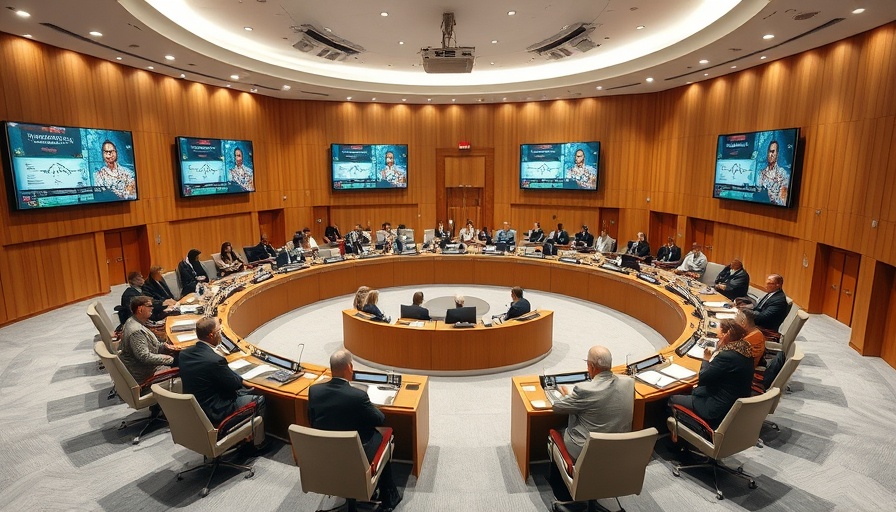
Metro Vancouver's Governance Shift: A Response to Critical Findings
The Metro Vancouver Regional District (MVRD) board is taking decisive steps to address the findings of a recent governance review conducted by Deloitte. The report highlighted a structure that was described as "large and unwieldy," prompting the board to initiate changes aimed at improving efficiency and accountability.
A Step Towards Fiscal Responsibility
One of the most significant changes includes the elimination of meeting fees for board members while traveling on MVRD business. Additionally, the board will no longer offer double stipends for meetings that extend beyond four hours. While Metro Vancouver Chair Mike Hurley expressed uncertainty about the exact savings these measures would yield, the intention behind these adjustments is clear: to foster a culture of fiscal responsibility while ensuring that taxpayer dollars are used efficiently.
Creating a Stronger Governance Framework
The board's commitment doesn't stop at just financial changes; it plans to establish a governance committee and enhance its internal audit functions. This move aims to provide the board with the tools necessary to evaluate its operations continually and ensure compliance with best practices in governance. Surrey Mayor Brenda Locke stressed the importance of systemic changes and indicated the need for a comprehensive approach that includes various aspects of governance reform.
The Broader Implications of Governance Reforms
Improving governance structures can have rippling effects beyond mere financial savings. An effective governance system can facilitate better decision-making, foster transparency, and ultimately rebuild public trust. Stakeholders and community members often feel disconnected from the processes that govern them; transparent reforms like these may help bridge that gap.
Public Engagement and Transparency: A Call for Inclusivity
As the governance committee begins its work, there’s a growing call for increased public participation in discussions surrounding governance reforms. By inviting community input, Metro Vancouver can elevate the voices of its citizens, ensuring that their needs and concerns inform policy decisions. This is particularly important in a diverse region where various interests and perspectives should be acknowledged.
Looking Ahead: Future Predictions and Trends
The changes instituted by the MVRD might set a precedent for other regional districts across Canada. As public sector organizations grapple with increasing scrutiny over how they conduct their affairs, Metro Vancouver's proactive steps could inspire similar reforms elsewhere. Observers will be watching to see if other regions adopt similar practices in governance, pushing for enhanced efficiency and accountability across the board.
Building a Framework for Accountability and Performance Improvement
Beyond financial austerity, the new governance approach introduces a framework whereby performance can be regularly evaluated. With improved auditing functions, board members can better assess the effectiveness of their initiatives and policies. Regular performance reviews will not just hold members accountable but also facilitate the identification of best practices that can be shared across different departments and committees.
What It Means for Residents of Metro Vancouver
For the residents of Metro Vancouver, these governance reforms symbolize a commitment from their leaders to act in the best interests of the community. As citizens see their elected officials taking steps to streamline operations and improve accountability, the hope is that this renewed governance structure will lead to enhanced service delivery, better infrastructure projects, and a more engaged populace.
As we watch these developments unfold, it becomes evident that governance is a dynamic process that requires constant evaluation and adaptation. The future of governance in Metro Vancouver looks promising, and the community stands poised to benefit from the results of these important changes.
 Add Row
Add Row  Add
Add 




 Add Row
Add Row  Add
Add 

Write A Comment